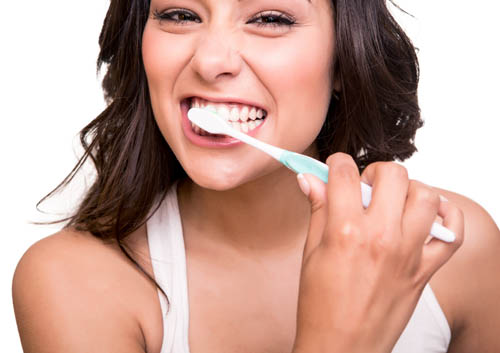Something To Chew On
April 9th, 2025

Chewing gum can be a sticky problem. We’re not talking about etiquette, or nutrition, or how to get rid of the darned stuff when you don’t have a trash container handy. No, we’re talking about gum and its effects on dental health. So, let’s take a moment to chew over the benefits and drawbacks of chewing gum.
- First, the Good News about Gum
One of the important benefits of chewing gum is increased saliva production. This might not sound especially appealing, but here’s an important fact: saliva is one of oral health’s unsung heroes.
Saliva helps wash away food particles which feed the bacteria in plaque. It helps neutralize acids in the mouth which can damage tooth enamel. The minerals in saliva actually help rebuild weak spots in our enamel.
And, since sugar-free gum has revolutionized the gum-chewing world, we don’t bathe our teeth in sugar while we chew. This is a major advantage, and it’s why sugar-free gums are the only products which are ADA approved. A possible downside? Some people who chew certain sugar-free gums (especially people who chew a lot of them) can experience digestive problems.
- What about Dental Work?
Yes, gum can be tricky for dentures, crowns, braces, and other dental work, especially with very sticky and chewy products. There are gums out there that claim to be safe for dental work, but finding the right gum can involve some trial and error that you might prefer to avoid. This is a good subject to discuss with Dr. Nymberg.
If you have a temporary crown protecting a tooth until your permanent crown is ready, avoid gum entirely until your restoration is complete. The pulling effect of sticky, chewy gum can make your temporary crown even more temporary than you were expecting! After your crown’s finished, talk to your dentist about chewing gum again.
- “Chews” Wisely
Chewing means jaw movement and pressure. Hours of chewing means hours of jaw movement and pressure. If your jaws ache after a gum marathon, maybe it’s time to cut back! But, if your jaws ache whenever you chew, that’s a sign that a visit to our Mason office is in order.
The temporomandibular joint (TMJ) is a kind of hinge which allows your mouth to open and close and move from side to side—in other words, to talk, eat, drink, yawn, make faces—all those things we do all day long. Recurring jaw pain can be a sign of TMJ (temporomandibular joint) disorder.
Bruxism, or tooth grinding, is another reason to leave gum off your shopping list. When you grind your teeth, you’re putting stress on your teeth and jaws which can lead to cracked and chipped teeth, headaches, and tooth and jaw pain. If you’re working on getting your bruxism under control, you’ll want to avoid chewing gum and other habits which cause jaw clenching.
You and your dentist are the people who know your oral health best. If you suffer from dry mouth and think chewing gum might help with saliva flow, or if you’re worried about your dental work being damaged by gum, or if you have jaw pain when you chew, or if you have any concerns about your oral health, visit All Smiles Family Dental for all the answers to your sticky questions.






